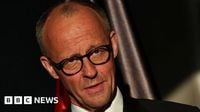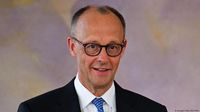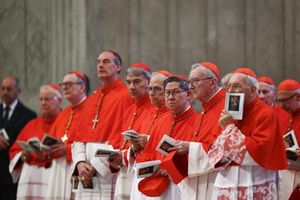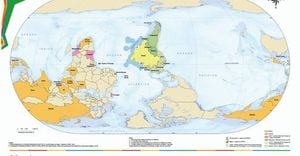Friedrich Merz's initial defeat in his bid to become chancellor sparked hours of chaotic uncertainty on what will be remembered as the day Germany's new leader entered office. Merz, who leads the center-right Christian Democratic Union (CDU), needed an unprecedented second vote to secure the necessary majority in the Bundestag, marking a historic debacle in German politics.
On May 6, 2025, after a tumultuous first attempt, Merz finally made it to the chancellery, but his messy path to power raises serious questions about the future government. If he couldn't muster the votes among coalition colleagues at such a critical moment, how will he fare when trying to push through any contentious legislation? Germany is grappling with a prolonged recession, fractious arguments on immigration, and potentially seismic decisions on defense spending, all while facing a surging far-right political force.
Gunther Krichbaum, a veteran of the CDU and Germany's new Europe Minister, expressed optimism about the situation, stating, "Now we are looking in front and forward. So I think we will have a very, very good and also stable government." However, the skepticism remains palpable as Merz embarks on his first official trips to Warsaw and Paris, overshadowed by the chaotic events of the previous day.
Following the February 2025 election, the far-right Alternative for Germany (AfD) has emerged as the main opposition party, pouncing on Merz's initial failure as evidence of the fundamental weaknesses within the coalition of CDU/CSU and the center-left Social Democrats (SPD). Beatrix von Storch, the AfD's deputy group leader, stated, "It is very clear that this government... will be a very, very unstable one," suggesting that the so-called "firewall" of non-cooperation with her party will not last.
Merz's entry into office was also observed by his old political rival, former Chancellor Angela Merkel, who had previously defeated him in a power struggle. This can't have been the way Merz envisioned entering office, and the spectacle left his claims of being ready to provide firm government significantly undermined on day one.
Despite the rocky start, Merz's CDU, CSU, and SPD will now work together as Germany's new government. As the oldest chancellor to take office since Konrad Adenauer, who served from 1949 to 1963, Merz has never held a top governmental office with significant leadership responsibilities. He had previously served as a member of the European Parliament and held various roles within the Bundestag but had not participated in coalition negotiations until now.
Merz's plans for government include a focus on strengthening ties with European allies amidst transatlantic turbulence caused by U.S. President Donald Trump's trade tariffs. He vowed to be "a very European chancellor" and emphasized the need to support Ukraine, stating he would consult intensively with France and Britain on this issue.
In the wake of the coalition negotiations, Merz's government has already achieved a softening of Germany's domestic debt brake, enabling an investment "bazooka" aimed at improving the country's crumbling infrastructure and boosting military spending. This comes as Germany's economy continues to struggle, having shrunk last year and not grown in inflation-adjusted terms for half a decade.
Merz's agenda includes tightening Germany's borders and toughening migration policies to respond to voter anxiety over the influx of new arrivals. He aims to modernize bureaucracy and reduce regulations to stimulate economic growth. However, his ability to pass legislation remains in question, especially after his coalition's initial hiccup in securing parliamentary support.
Observers have noted that the initial failure to secure votes may have been a personal protest from some coalition members. Merz's relationship with the AfD has also sparked controversy, as he previously accepted their backing on certain parliamentary votes, breaking a political taboo.
As Merz heads to Paris and Warsaw on May 7, 2025, he aims to present a united European front against the pressures from Trump and Russia's ongoing war in Ukraine. French President Emmanuel Macron was among the first to congratulate Merz, expressing hope to strengthen Franco-German ties and accelerate the European agenda for sovereignty, security, and competitiveness.
Ukrainian President Volodymyr Zelensky has also expressed optimism about Merz's leadership, stating, "We sincerely hope that Germany will grow even stronger and that we'll see more German leadership in European and transatlantic affairs." Merz's commitment to supporting Ukraine may play a significant role in shaping Germany's foreign policy moving forward.
However, the shadow of World War II looms over relations with Poland, where historical issues complicate diplomatic ties. As Merz seeks to repair relations with Poland and France, he must navigate the complexities of their three-way relationship, especially with Poland's opposition party demanding reparations from Germany.
In summary, Friedrich Merz's ascent to the chancellery has been marked by a tumultuous start that raises questions about the stability and effectiveness of his government. As he embarks on his first diplomatic missions, the challenges ahead are significant, and his ability to unify his coalition and address pressing issues will be crucial for Germany's future.





